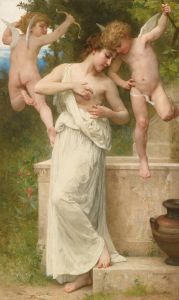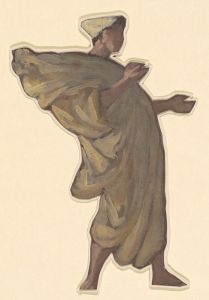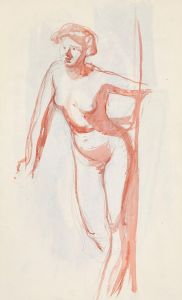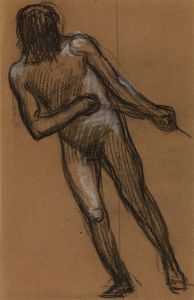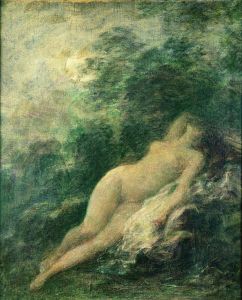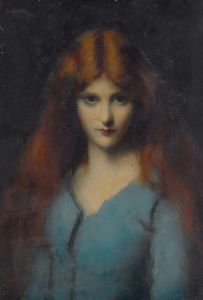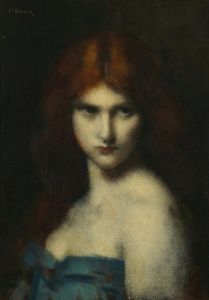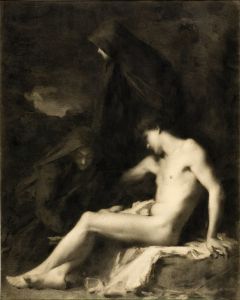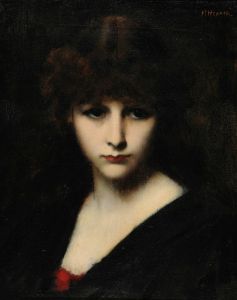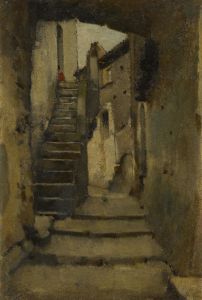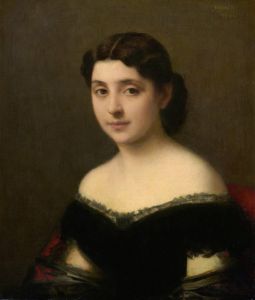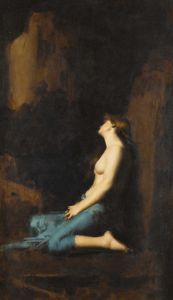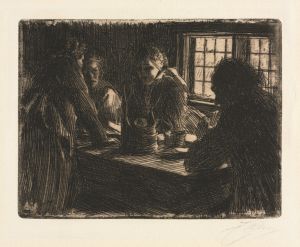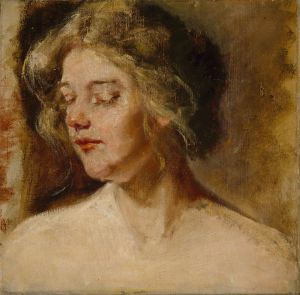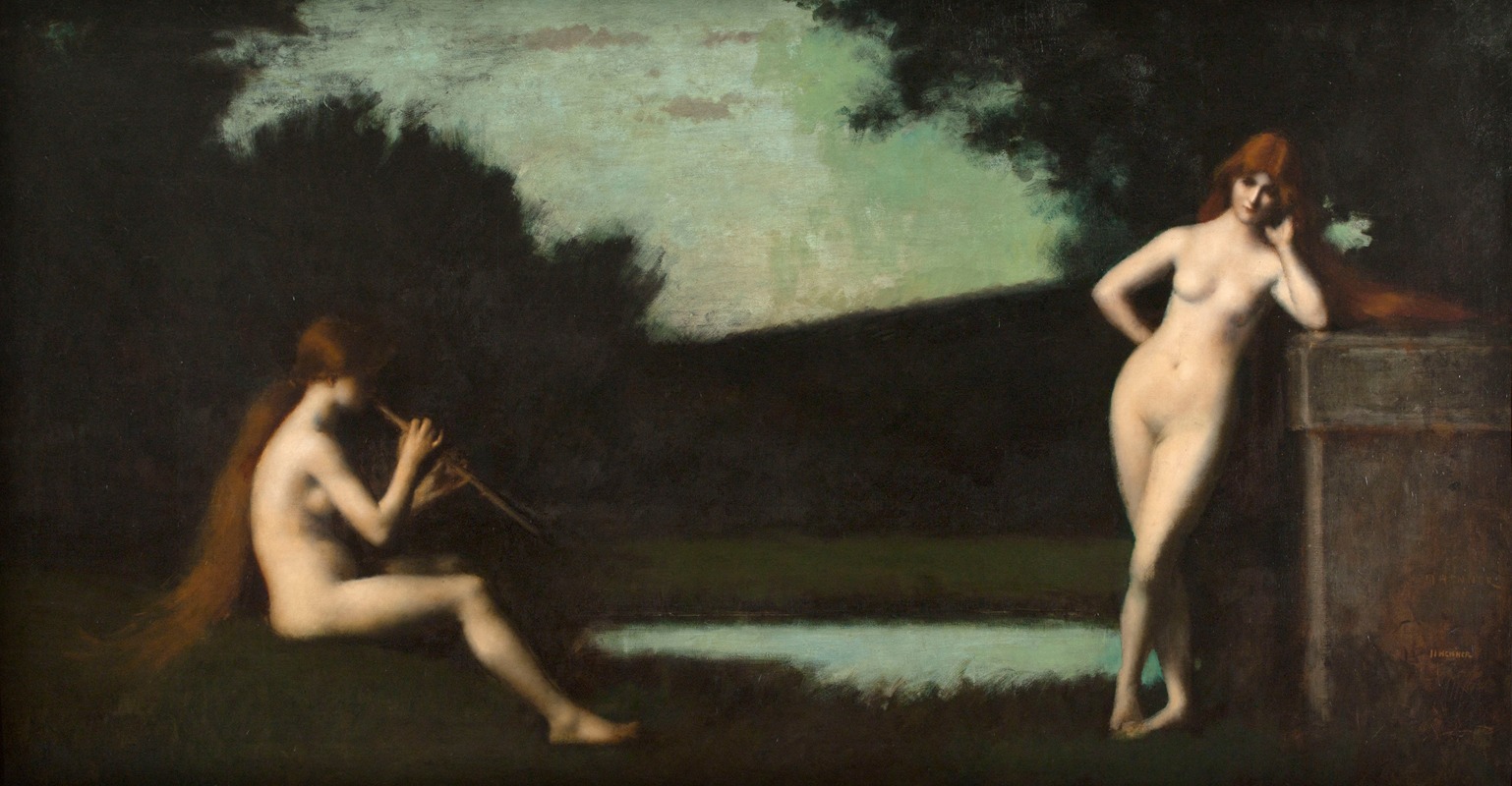
Eglogue
A hand-painted replica of Jean-Jacques Henner’s masterpiece Eglogue, meticulously crafted by professional artists to capture the true essence of the original. Each piece is created with museum-quality canvas and rare mineral pigments, carefully painted by experienced artists with delicate brushstrokes and rich, layered colors to perfectly recreate the texture of the original artwork. Unlike machine-printed reproductions, this hand-painted version brings the painting to life, infused with the artist’s emotions and skill in every stroke. Whether for personal collection or home decoration, it instantly elevates the artistic atmosphere of any space.
Jean-Jacques Henner was a renowned French painter known for his portraits and nudes, often characterized by their ethereal and dreamlike qualities. One of his works, "Eglogue," exemplifies his mastery in capturing the human form and his ability to evoke emotion through subtle use of color and light. Henner was part of the academic art tradition, and his works often reflect the classical influences that were prevalent in the 19th century.
Henner was born on March 5, 1829, in Bernwiller, Alsace, France. He studied at the École des Beaux-Arts in Paris and was a student of Michel Martin Drolling and François-Édouard Picot. Henner's early works were influenced by his academic training, but he gradually developed his unique style, which combined realism with a more romantic and idealized approach to the human figure.
"Eglogue" is a painting that reflects Henner's fascination with the pastoral and idyllic themes often found in classical literature and art. The term "eglogue" itself refers to a type of pastoral poem, which typically depicts rural life in an idealized manner. This theme was popular among artists and writers during the 19th century, as it evoked a sense of nostalgia for a simpler, more harmonious existence.
In "Eglogue," Henner employs his signature technique of using soft, diffused lighting to create a serene and tranquil atmosphere. The figures in the painting are often depicted with a sense of grace and elegance, their forms rendered with delicate brushwork that highlights the contours of their bodies. Henner's use of color is also noteworthy, as he often employed a limited palette to enhance the mood of his compositions. The subtle interplay of light and shadow in "Eglogue" adds depth and dimension to the scene, drawing the viewer into the idyllic world that Henner has created.
Henner's work was well-received during his lifetime, and he exhibited regularly at the Paris Salon, where he won several awards. His reputation as a skilled portraitist and painter of nudes earned him numerous commissions, and he became a respected figure in the French art world. In 1873, he was awarded the prestigious Prix de Rome, which allowed him to study in Italy and further refine his artistic skills.
Throughout his career, Henner remained committed to the ideals of academic art, even as new movements such as Impressionism began to emerge. His dedication to the classical tradition is evident in "Eglogue," which continues to be admired for its technical excellence and timeless beauty.
Henner passed away on July 23, 1905, in Paris, leaving behind a legacy of works that continue to be celebrated for their elegance and emotional depth. Today, his paintings can be found in museums and private collections around the world, where they continue to captivate audiences with their serene beauty and masterful execution.





